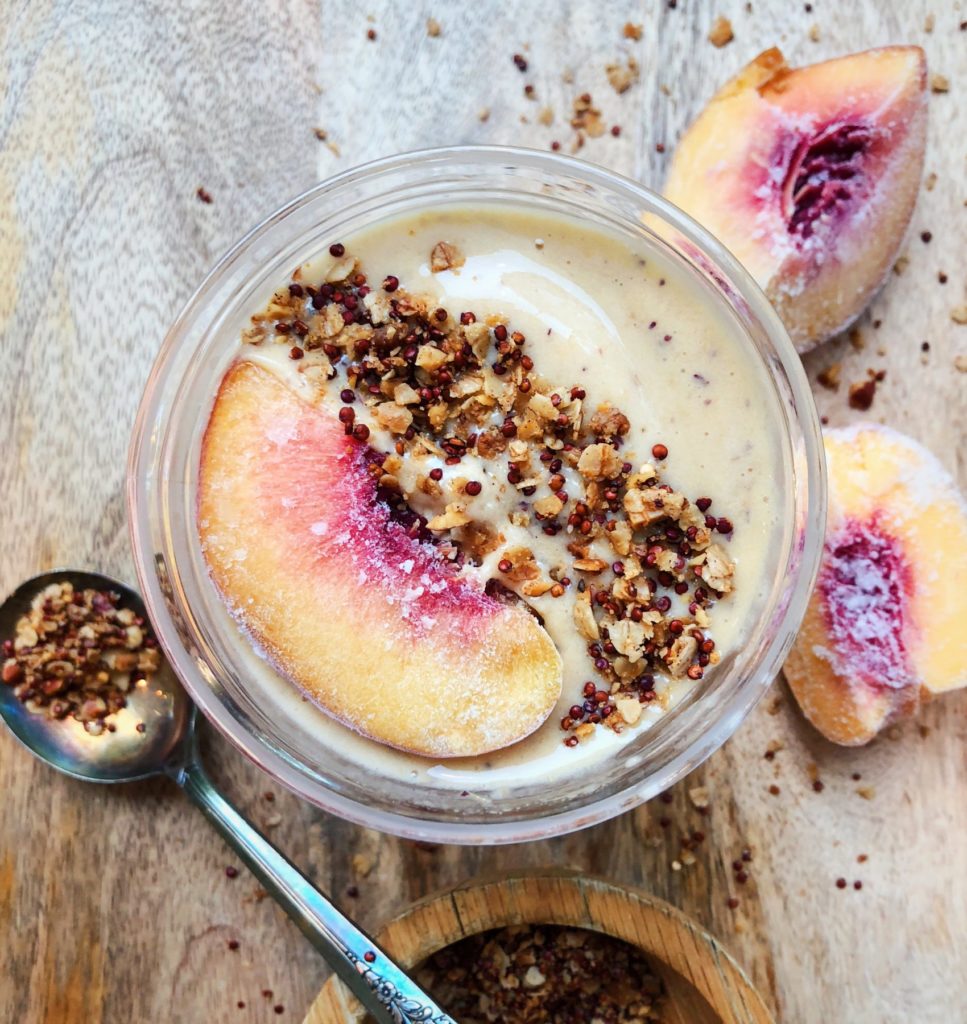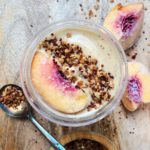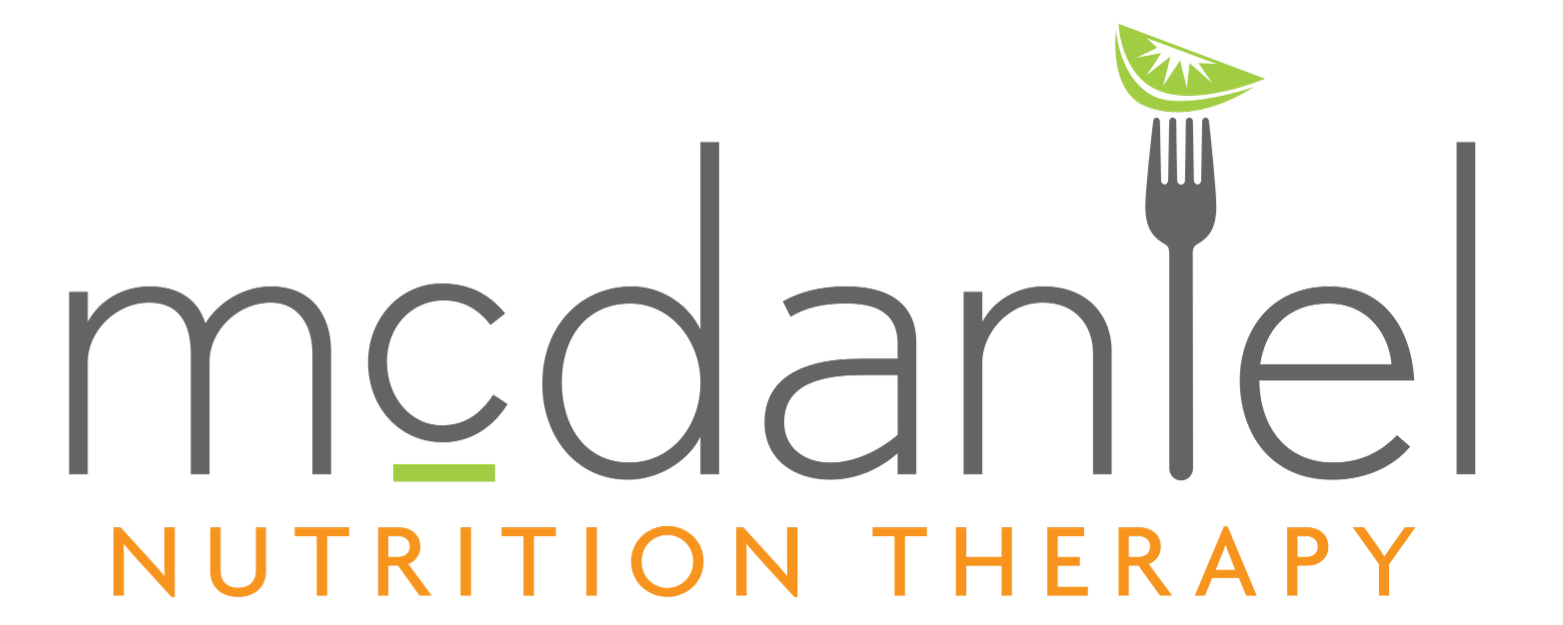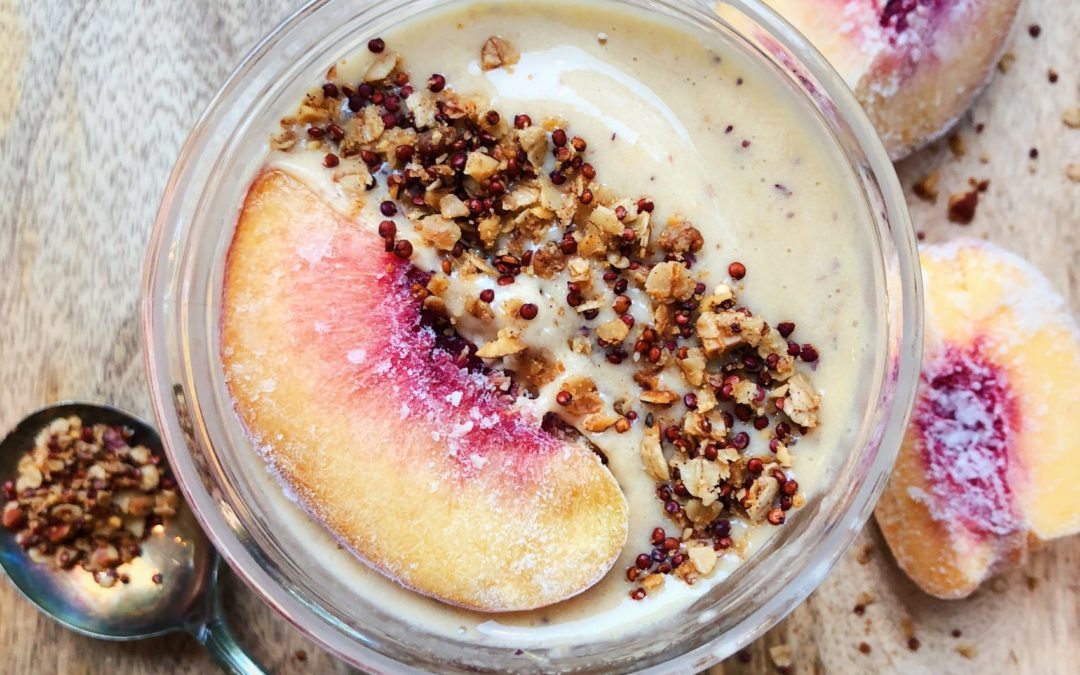Recovery fuel should taste good, and this Peach Recovery Smoothie is the post-run fuel I crave.
The Training Mama
It’s been 8 years since my last full marathon. My oldest son is 7. See any connection? It’s becoming obvious that training before kids was a luxury. I could train at any time of the day. After a long-run, there was opportunity to plop down on the couch and watch an entire football game. There was all the time in the world to map out my training fuel. The soon-to-be hubs would marvel at the time I spent hiding water bottles in bushes along my route.
Fast forward, 3 kids later, one of my current struggles is making time for post recovery nutrition. When I arrive back from a long-run, my kids immediately ask me to join in on their activity. Yet, I’m hungry (on the verge of hangry), and I know recovery fuel is what I need.
3 Myths of Recovery Fuel
There are a lot of misconceptions around recovery fuel. I’ve heard it all in my practice as a sports dietitian. Misconceptions include:
-
Protein is the primary nutrient of concern
-
Formalized sports nutrition products are superior to real food
-
You need recovery fuel after every workout
Let’s debunk those and then discuss timing:
1. Protein is the primary nutrient of concern.
While protein is necessary in recovery fuel, a carbohydrate source is also important. After a hard or long-workout, you should include at least 10 grams of protein in a carb-based snack.
Examples include:
-
1 cup yogurt + 1/2 cup fruit + 1/4 cup granola
-
1 whole-wheat wrap with 1 egg + 1 oz. cheese
-
Peach Recovery Smoothie – see recipe below
A common body composition goal is to optimize muscle mass while reducing fat. The goal is to include a serving of protein at EVERY meal, not only in your recovery drink.
2. Formalized sports nutrition are superior to real food.
Ready made sports nutrition products are convenient and may have the right ratio of carb:pro. Yet, you can meet your post exercise needs with real food (and it’s cheaper).
3. You need recovery fuel after every workout.
Recovery fuel becomes most critical if you have another workout in the same 24 hour period. For example, if you run in the morning and then have a strength training workout later in the day. If you go out for a 60 minute run, you don’t need post run fuel, immediately. Ideally, we should be eating nutritious and balanced fuel throughout the day. Most of my runs occur early in the morning, and I don’t have time to scarf down much fuel before. Recovery fuel in my case also serves as a balanced breakfast.
Speaking of a balanced breakfast: Try this Peach Kefir Milk Recovery Smoothie. Not only does it include the right balance of recovery fuel; you can easy refuel while you reconnect with your kiddos.

Peaches & Bananas: High-quality carbohydrate including fruits rich in vitamin C + potassium to help support a healthy immune system that can be compromised from long distance runs
Soy milk: High-quality protein which promotes muscle synthesis and prevents muscle breakdown
Kefir milk: Source of high-quality protein and gut-health promoting probiotics (my favorite is Wallaby plain) which enhances recovery and immune function
Nut butter: Fat source which adds creaminess and fullness
Ginger: Anti-inflammatory spice which reduces muscle soreness
Chia seeds: Plant-based omega-3 fats to reduce inflammation
For an added extra crunch on top of your smoothie, check out our homemade granola recipe to top off your perfect recovery smoothie.
Print


peach recovery smoothie
- Prep Time: 5
- Total Time: 5 minutes
- Yield: 1 1x
- Category: smoothie
- Method: blend
Description
The perfect peach recovery smoothie after your hard workout!
Ingredients
Scale
- 1/2 cup kefir milk, plain
- 1/2 cup soy milk, unflavored or vanilla
- 1 peach, sliced, frozen
- 1/2 banana, frozen
- Small slice of fresh ginger root
- 1/2 t. turmeric powder
- 1 T. nut butter
- 1 T. chia seeds
Instructions
- Put all ingredients into a blender and blend until smooth.
Notes
I prefer using frozen fruit in my smoothie. The smoothie is thicker, colder and omits having to use ice, which can water down the flavors.
Nutrition
- Serving Size: 1 smoothie
- Calories: 350
- Sugar: 30.9 g
- Sodium: 180.9 mg
- Fat: 13.8 g
- Carbohydrates: 47.5 g
- Protein: 14.8 g
- Cholesterol: 2.5 mg

